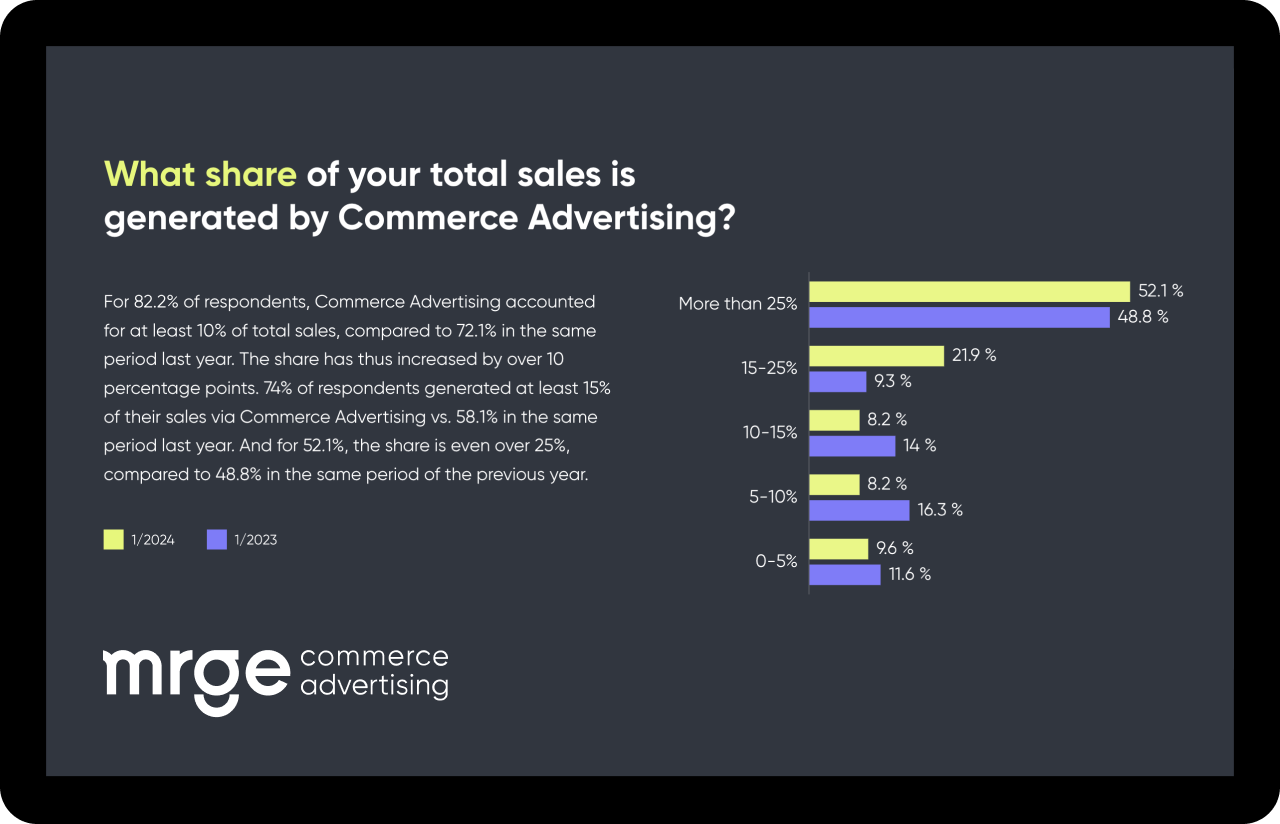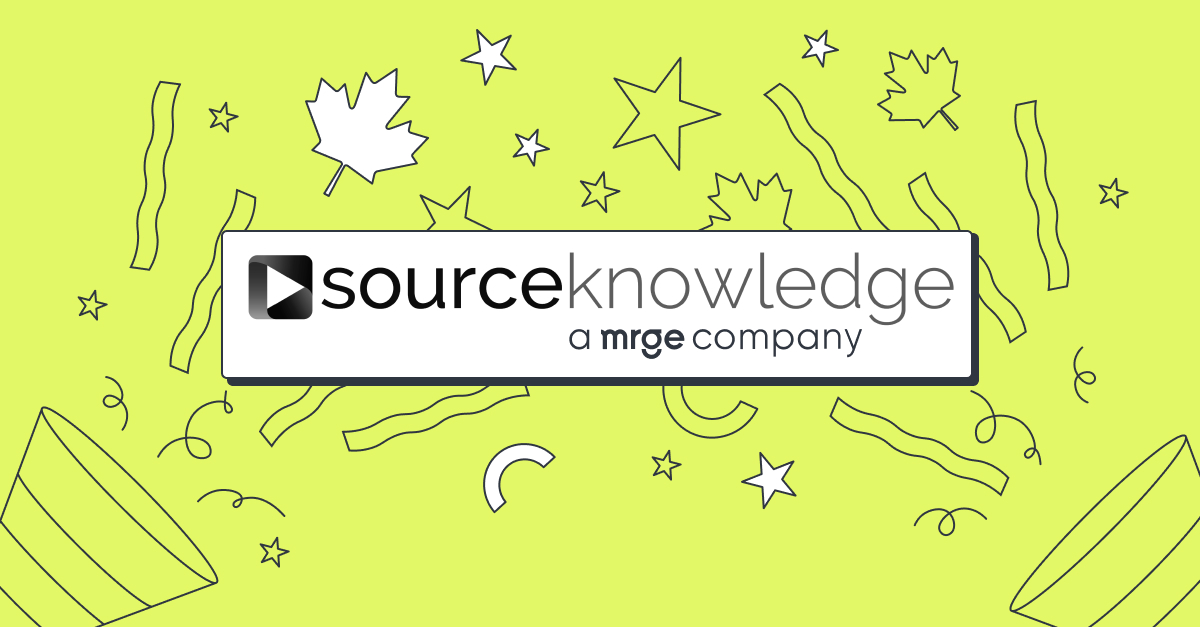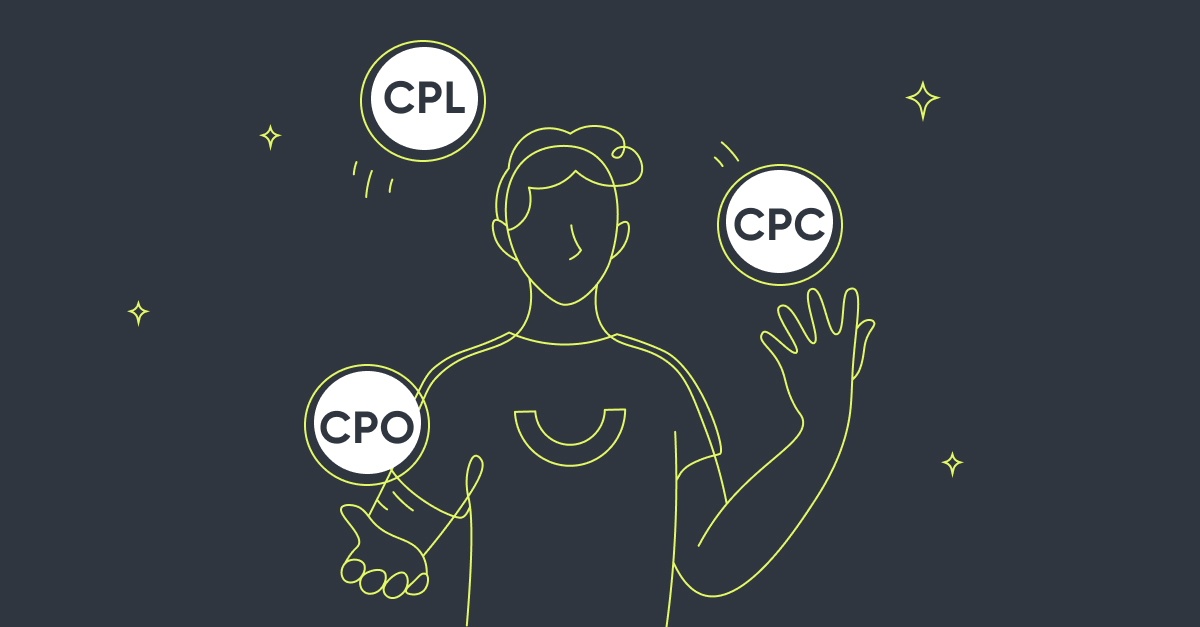Many publishers who have implemented a search function on their portals overlook the great potential hidden within. The targeted display of product recommendations in transactional searches can generate attractive additional revenues. But what exactly are “transactional searches” – and how can they be monetized?
Key Take Aways
Executive summary: 5 key take-aways for quick readers
- Transactional searches are searches with a specific intent to buy.
- For successful monetization, it is important to understand users’ search intent.
- Machine learning can be used to identify and monetize transactional searches.
- The neuronal models used must be regularly retrained in order to keep up with the latest developments.
- Ads played out in a purchase-friendly context have up to 140% higher click-through rates and up to 65% higher conversion rates.
Search intent: What types of search queries are there?
Behind every query made on Google (or any other search engine) is a specific search intent. In other words, the user wants to achieve something with their query. Based on this intent, almost every search fits into one of three categories:
- Navigational search: The user wants to get to a very clear destination – a specific website or subpage. They are not interested in the widest possible selection, but want to reach their goal with as few clicks as possible. Examples of this search query are: “Instagram”, “Federal Ministry of Transport”, or “Zalando Contact”.
- Informational search: The user wants to acquire knowledge, find information, or have specific questions answered. Typical search queries begin with the 5 Ws, but may also look like “Mount Everest height”, “risotto recipe”, or “build my own bookshelf”.
- Transactional search: The user has a clear intent to make a purchase or another type of conversion, such as a download. This takes place in a late phase of the customer journey and often contains keywords such as “buy” or “order”, but there is also usually a purchase intent behind specific product names or descriptions such as “coffee machine” or “iPhone 11”.
Search intent plays a central role in SEO: If you understand user intent, you can produce content that matches it. However, for publishers who have integrated a search function on their site (for example, from Google, Bing, or a proprietary tool), understanding the various search intentions also offers another important monetization opportunity.
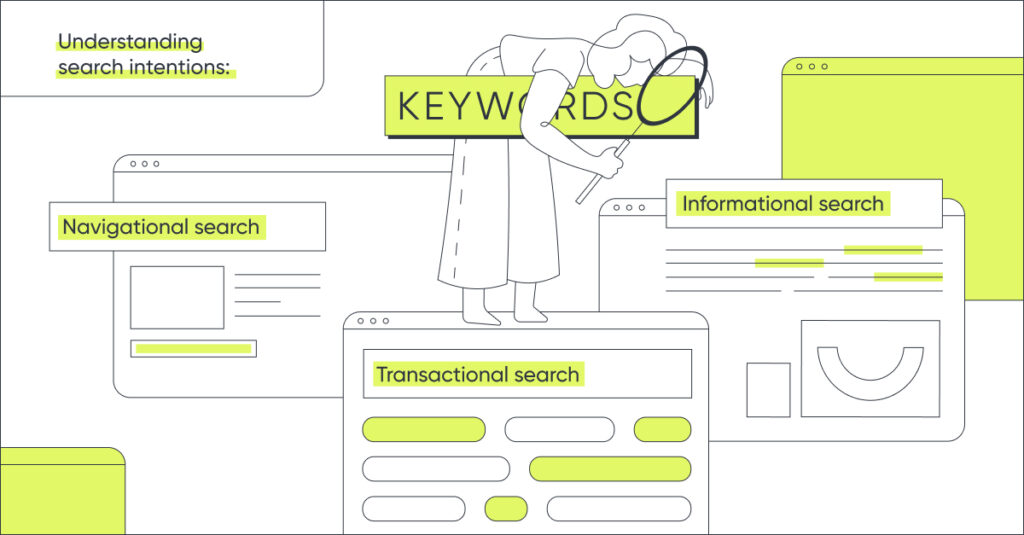
Monetizing transactional searches
For site operators who offer advertising space for various formats, such as banner advertising, it is essential to enable ad playout that is as user-relevant as possible. The more closely an ad corresponds to the interests and intent of a site visitor, the higher the click rate. This means not only more revenue for the advertiser, but also more commissions for the publisher.
How are transactional searches monetized?
In order to generate revenue from transactional searches, they must first be recognized as such. This is best achieved by using a neural model that classifies the text of the search query. Machine learning is used to train this model to distinguish between transactional and non-transactional input in the search field. To do this, the model is fed two sets of data, for example from product databases or SEA data. Software solutions such as recomAD Transactional Search help with exactly this. As a result, publishers do not have to develop a neural model themselves or deal with machine learning.
This also helps to overcome the challenge of obtaining training data for non-transactional searches. Often, the context determines whether a specific keyword indicates an intent to buy. Why this is so critical can be illustrated with a simple example: Suppose a user is on a news portal, looking for current information about a knife attack that happened in his hometown. How macabre would it then be if advertisements for knife sets or similar products appeared in the search results because “knife” was identified as a keyword?
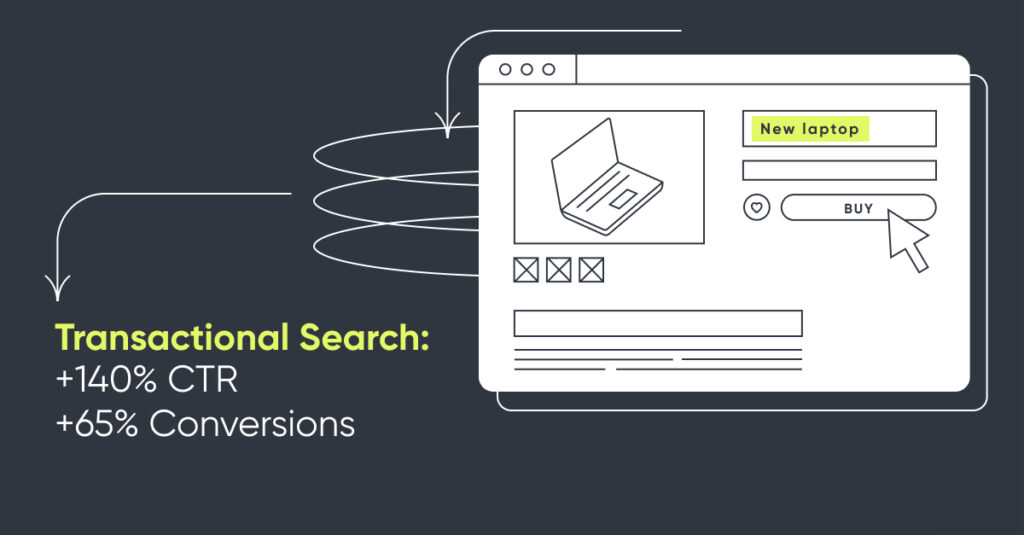
Once the model has been trained, it can be integrated into the site’s search function. If a search query is then recognized as transactional, suitable shopping ads are displayed via a widget.
Page operators who use such a model must make sure to train it regularly with fresh data in order to keep up with current developments. This is because the intent behind a specific search phrase can change over time. An example from Germany: Until early 2020, the search query “Selbsttest” (“self-test”) was mainly informational: Users were looking for self-diagnosis options, or wanted to take personality tests on entertainment websites. Today, the keyword “Selbsttest” is usually transactional: Users want to buy COVID-19 self-tests for home use.
Transactional searches: game-changer in Commerce Advertising
Publishers can increase their performance – and thus tap into new sources of revenue – by displaying product recommendations in a precisely tailored manner. The use of machine learning ensures that transactional searches are reliably recognized and users are only addressed with product recommendations if they already have an intent to purchase. Thanks to the higher relevance, products are displayed less frequently, but more precisely. Compared to a standard ad or widget without transactional logic, click-through rates are up to 140% higher and conversion rates are up to 65% higher : a clear benefit for publishers and advertisers.
Have you implemented a search engine on your portal and want to monetize the search queries? Learn more about how recomAD Transactional Search can support you.


